KATHMANDU: With an ambition to attract 2 million visitors in 2020, Nepal has launched a campaign ‘Visit Nepal 2020’. With a campaign, Nepal has expected to influx more Chinese tourists to meet the target. The tourism entrepreneurs, already skeptical about the adaptation of Chinese tourists, seem more concerned with the high booking cancellation led by Corona. The 2 million tourists’ project seems impaired with the decline of the tourists as corona impact.
Due to the coronavirus, the influxes of tourists has declined by 60 percent while 50 percent of the hotel bookings are already canceled.
Among the canceled ones, 30 percent of hotels were those booked by Chinese groups.
January and February are deemed as the best months for Chinese tourists. However, the Corona terror that sprang from Wuhan has impacted the tourism here both by curtailing the Chinese and other international visitors’ recreational moments in Nepal. This factor is sure to have an adverse impact on Visit Nepal 2020.
According to the Tourism Board, 1,69,000 Chinese had visited Nepal in 2019 which is the second largest number after India. It is said that more than 13,000 Chinese have visited Nepal in January and February amidst the virus reign in major cities in China.
Besides Chinese, European tourists have also canceled their trip to Nepal due to the Coronavirus epidemic. Hoteliers are worried that the business will collapse.
However, Nepal Government still hopes that the Chinese tourists will visit Nepal once the situation becomes normal in China.
Moreover, Nepal’s Ministry of Tourism led by Yogesh Bhattarai has made a plan to promote Visit Nepal 2020 in China in English and local languages. Similarly, it has planned to do a campaign in China saying “Nepal is free of Coronavirus” to attract Chinese tourists.
However, many people around the world have a bad impression of Chinese tourists due to the way they behave while visiting foreign countries.
In the past few years, these tourists have really earned a really bad reputation worldwide. Even those of Chinese descent in Southeast Asia, Hong Kong, and Taiwan are unable to tolerate such behaviors.
For instance, in Hong Kong, there were instances where Chinese mothers allowed their children to urinate in public which made several HK residents extremely unhappy. When confronted by HK people, the mum slapped one on the face and rammed another with the pram.
In fact, in response to a poll by the SCMP.com headlined “What makes some Hongkongers dislike mainland China and its people?”, more than 50 percent of readers blamed the negative feelings on “ill-behaved tourists” believing that they have money but not the manners.
Chinese tourists have acquired the same sort of reputation for loud, uncouth, culturally unaware behavior that inspired the term “Ugly Americans” decades ago.
Some Chinese media commentators say improper behavior is often an extension of domestic habits. Wang says many Chinese tourists are rural people who recently acquired money through land sales but have little education and speak only their own language.
If public toilets don’t exist in their villages, she says, they may not know to look for them when the need arises. Wang also says education has also not kept pace with the rapid rise of the middle class and its growing wealth.
“It’s going to take some years before they behave better. There has been a campaign in China for some time, but these things are still going on,” she says.
Shi and several other frequent travelers said the top two problems with Chinese tourists were that they were very noisy and showed no respect for queues.

In many restaurants, staffs advise customers to sit and wait when there are no tables, but “Chinese tourists flock inside, making a big noise, never giving waitresses a chance to guide them to be seated in order”, Shi said.
Huang Ruolin, a traveler and freelance writer based in Jiaxing, Zhejiang, said wasting food at hotels was also typical of Chinese tourists.
“Chinese tourists’ plates are always full. They waste a lot of food in buffets,” she said. “And it’s like they only enjoy their stay when they use a lot of consumables in hotel rooms.”
Shi said another bad habit of Chinese tourists was that they rushed for everything.
“They always open the luggage compartment to grab their stuff before the plane comes to a halt,” she said.
The Chinese are the second-largest group of visitors to Nepal, with arrivals of 153,000 in 2018, but technically, their spending does not benefit the industry, market insiders say.
“Many Chinese tourists don’t abide by it, either because they don’t know or don’t care,” she said. “Learning local rules and customs before heading for an exotic place should be a basic preparation for a tourist.”
Shi said she seldom heard people in her tour groups say ‘thank you’, “either because they are too shy or not used to it.”
“My colleagues and I often complain that many of our compatriots lack a sense of gratefulness,” she said. “They think they deserve everything.”
According to reports, eight bad habits of the Chinese tourist are being noisy, not queuing, spitting, wasting food and hotel supplies, rushing, ignoring local rules, rarely saying thank you and writing graffiti.
Hoteliers in Thamel say that they are ‘frustrated’ with the Chinese tourist for their ‘strange’ manner. Even the tour operators feel uncomfortable when such behavior becomes public.
A tour driver, under anonymity, said to Khabarhub that the Chinese tourists spit everywhere and make the vehicle dirty. “It is compulsory to wash the vehicle when there is a Chinese tourist’.
Even in Switzerland, the government has introduced special coaches for Chinese tourists, as locals consider them to be ‘loud’ and ‘rude’.
Wang, a former Communist Party boss of Guangdong province bordering Hong Kong, said the main complaints against Chinese tourists are “talking loudly in public places, jaywalking, spitting and wilfully carving characters in scenic zones.”
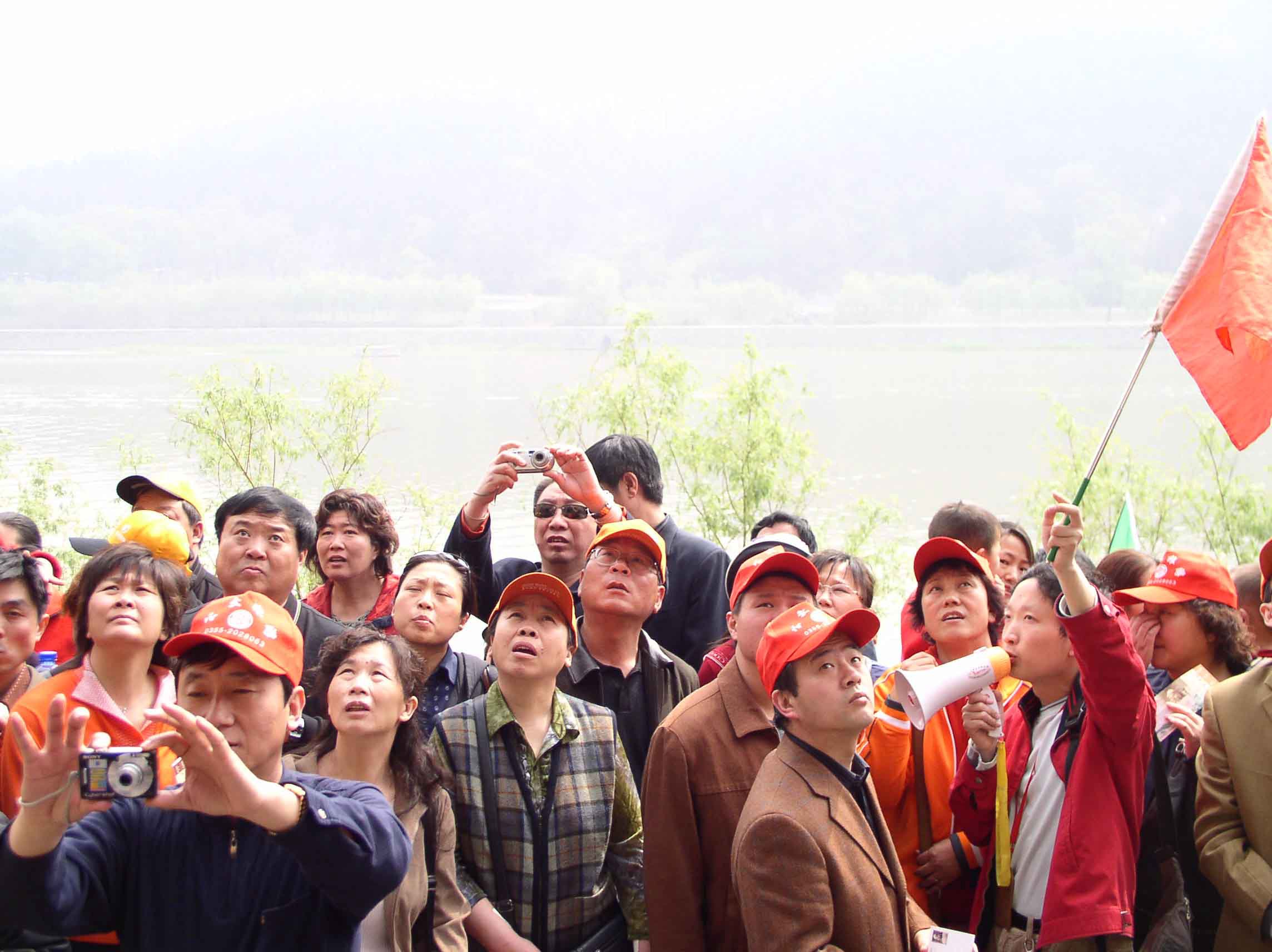
People around the world who have contact with Chinese tourists report many other pieces of unseemly behavior including not flushing toilets, ignoring no-smoking signs, flouting traffic laws, littering, elbowing their way to the front of lineups, and allowing children to urinate or defecate in public.
China’s number of outbound trips aboard surpassed 150 million in 2018. Nepal welcomed some 169,543 Chinese tourists in 2019.
Similarly, amid the coronavirus outbreak, 13,727 tourists have come to Nepal. But the government of Nepal does not have the proper information about where they have gone and what the purpose of their visit is. Even more, the Government fails to do the test of coronavirus on them. It may be haphazard that they could spread the virus to Nepal if they are infected with it.
Though Nepal is happy with the influx of Chinese tourists, economically, Nepal fails to gain something. This significant increase in visitors was not matched by a similarly significant increase in incomes, leading economists and the tourism industry to wonder if Nepal is turning into a destination for budget travelers. Chinese tourists are bypassing our financial system.
A burgeoning issue concerns online payment methods, including those employed primarily by the Chinese. Payments by Chinese tourists via WeChat or Alipay are growing in Nepal, and a significant portion of businesses in Thamel accept payments via two of China’s most popular mobile payment platforms.
These apps make payments easier and more convenient for Chinese tourists, but such transactions bypass formal banking channels. Transactions are made from one Chinese account to another, which means the money technically does not enter Nepal.
The Chinese are the second-largest group of visitors to Nepal, with arrivals of 153,000 in 2018, but technically, their spending does not benefit the industry, market insiders say.
Nepal is planning to attract even more Chinese tourists in the Visit Nepal Year 2020, a government campaign that aims to attract two million foreign tourists.
But the arrival of more Chinese tourists will not make any difference if what they spend in Nepal never enters the country. This is because money can only create an economic impact if it passes around, from, say, restaurant owners to vegetable and meat suppliers to farmers and so on.
Even more, on December 23, the Nepal Police arrested 122 Chinese nationals from all over the Kathmandu Valley. The operation, the largest one against any foreign nationals in Nepal’s history, apparently continues: at least 800 more Chinese nationals are being watched currently.
While this is not the first time Chinese citizens have been arrested on Nepali soil—five being arrested for hacking ATMs and stealing money in September this year alone—some features of this recent police action do seem suspicious.
According to Nepali officials, some Chinese have been staying illegally or doing business in Nepal despite holding a tourist visa. Similarly, many Chinese arrived in Nepalis are found involved in suspicious activities taking advantage of free visa provisions which have the validity of 30 days.
To make a long story short, taking advantage of poor technological knowledge and dependence, ‘novice’ Chinese tourists have breached Nepali laws and have given birth to different challenges to Nepal’s struggling economy.


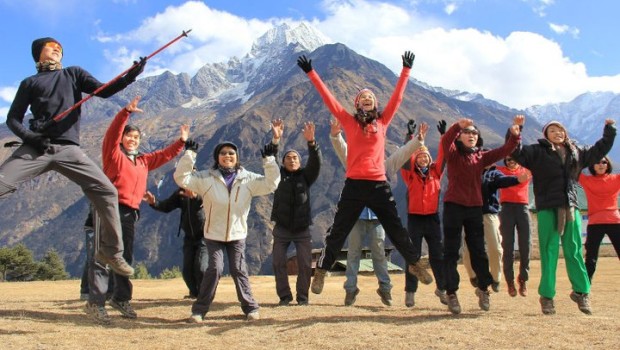
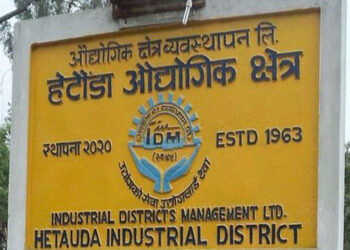
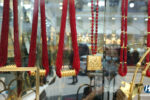


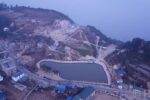

Comment